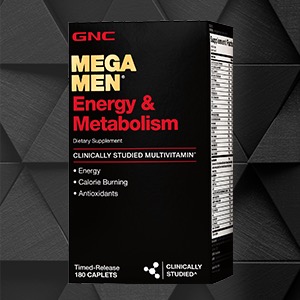Niacin (Vitamin B3): Health Benefits, NAD/NADP Metabolism, Deficiency Symptoms, Mental Health & Cancer Protection
Niacin (Vitamin B3): Metabolism, Benefits, Deficiency Symptoms, and Its Impact on NAD, Cancer, and Mental Health
Niacin, also known as vitamin B3, is a vital nutrient that plays a major role in converting food into energy, maintaining healthy skin, and supporting both the nervous and digestive systems. It’s essential for the creation of coenzymes like NAD and NADP, which are involved in countless biological processes in the body.
What Is Niacin?
Niacin refers to two main chemical forms: nicotinic acid and nicotinamide. Both are used by the body to create NAD (nicotinamide adenine dinucleotide) and NADP (nicotinamide adenine dinucleotide phosphate), which are required for hundreds of enzymatic reactions. NAD is involved in energy metabolism, while NADP plays a major role in antioxidant defense and biosynthesis.
How Niacin Is Metabolized
Your body can get niacin in two ways: directly from food, or through the conversion of the amino acid tryptophan into niacin. This conversion requires several other nutrients, including:
• Vitamin B6 (pyridoxine)
• Riboflavin (vitamin B2)
• Iron
• Zinc
 |
Fuel Your Potential with GNCUnlock peak performance with GNC’s trusted line of health and wellness products. From premium vitamins to cutting-edge supplements, GNC has everything you need to power your goals. Discover the MegaMan® Energy & Metabolism Multivitamin—specially formulated for active men, this high-performance blend supports energy, metabolism, and mental focus so you can crush every day with confidence. Shop smarter. Live stronger. Only at GNC. |
Without these nutrients, the conversion process can be impaired, leading to potential deficiency even if dietary protein intake is adequate.
What Is NADP?
NADP is the phosphorylated version of NAD. It is essential for anabolic reactions like fatty acid and cholesterol synthesis and is crucial in maintaining the body’s antioxidant systems. NADP helps generate NADPH, which in turn plays a key role in detoxifying reactive oxygen species and regenerating glutathione, one of the body’s most important antioxidants.
 |
| NAPD, molecule. |
Symptoms of Niacin Deficiency
A severe deficiency in niacin leads to pellagra, which is defined by the “3 D’s”:
1. Dermatitis (especially in sun-exposed areas)
2. Diarrhea
3. Dementia
Other symptoms can include fatigue, headaches, depression, and memory loss. If left untreated, pellagra can be fatal.
Health Benefits of Niacin
Niacin is involved in multiple systems in the body:
• Energy production: Converts carbohydrates, fats, and proteins into energy
• Skin health: Helps maintain healthy skin and treat conditions like acne and rosacea
• Nervous system: Supports brain function and helps stabilize mood
• Digestive system: Maintains normal digestive function
• Cardiovascular health: Prescription niacin may lower LDL cholesterol and raise HDL cholesterol
Niacin and Cancer
Recent studies suggest that higher dietary intake of niacin may be associated with reduced cancer mortality. NAD and NADP are crucial for DNA repair, cell signaling, and maintaining genomic stability—factors that are essential in reducing the risk of cancer development and progression.
Niacin and Mental Health
Niacin is also critical for brain health. A deficiency can lead to cognitive decline, anxiety, depression, and even psychosis. Some studies have explored its potential in supporting treatment for schizophrenia and Alzheimer’s disease. Adequate levels of NAD and NADP help support neurotransmitter synthesis and neural cell repair.
Recommended Intake
• Men: 16 mg NE/day
• Women: 14 mg NE/day
NE stands for niacin equivalents, which accounts for both direct niacin and tryptophan-derived niacin.
Top Niacin-Rich Foods
• Chicken breast
• Tuna
• Turkey
• Salmon
• Brown rice
• Mushrooms
• Peanuts
• Whole grains
Conclusion
Niacin is far more than just another B vitamin—it’s a central player in the body’s energy systems, DNA repair processes, and mental health. Whether through food or supplements, ensuring adequate niacin intake supports a wide range of essential biological functions and may even help protect against diseases like cancer and Alzheimer’s.
Disclaimer: This blog is for informational purposes only and does not constitute medical advice. Always consult a healthcare professional before making health decisions. This article contains paid affiliate links, which help support our work at no additional cost to you.
Tags:# niacin, #vitamin B3, #niacin benefits, #niacin metabolism, #NAD, #NADP, #tryptophan to niacin, #niacin and cancer,





Comments
Post a Comment